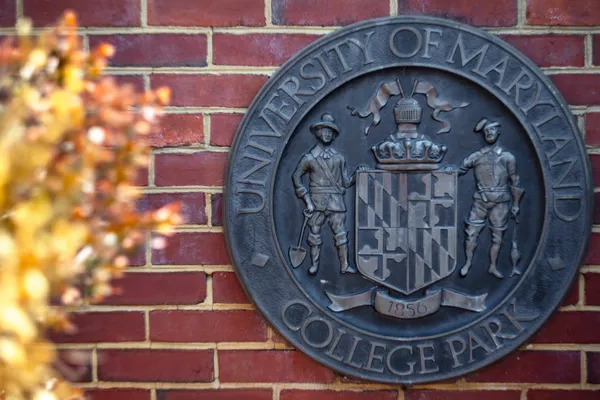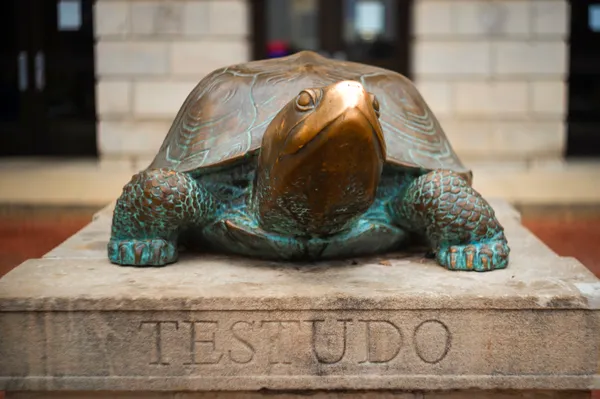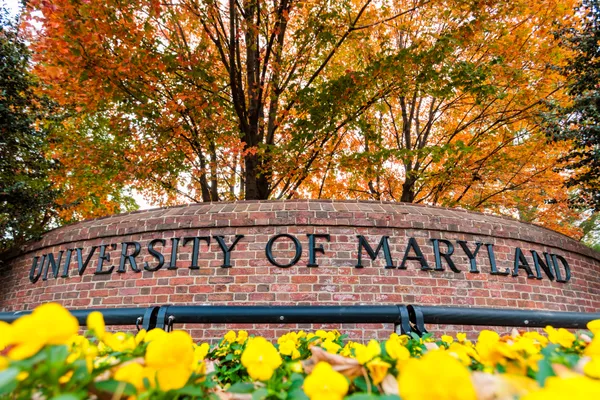Integrity and Conduct Issues
Research Misconduct and Scholarly Misconduct

How OIRC Addresses Allegations of Research Misconduct and Scholarly Misconduct
It is the policy of the University of Maryland, College Park ("UMD") to:
- maintain high standards of honesty, accuracy, and objectivity in research and scholarly work;
- prevent Research Misconduct and Scholarly Misconduct where possible;
- evaluate and resolve promptly and fairly instances of alleged or apparent Research Misconduct and Scholarly Misconduct; and
- take appropriate remedial and disciplinary action in response to findings of Research Misconduct and Scholarly Misconduct.
OIRC administers the University of Maryland Policy and Procedures Concerning Scholarly Misconduct and ensures compliance with federal regulations governing the handling of allegations of Research Misconduct (e.g., 42 CFR Part 93).

Recognizing and Avoiding Research Misconduct and Scholarly Misconduct
At UMD, Research Misconduct is considered a type of Scholarly Misconduct, but the concepts and their meanings are not directly interchangeable.
Learn more about the concepts of Research Misconduct and Scholarly Misconduct, including how to recognize and address risk factors, below.
What is Research Misconduct?
RESEARCH MISCONDUCT
The term "Research Misconduct" refers to fabrication, falsification, or plagiarism in proposing, performing, or reviewing research or in reporting research results. This definition is derived from federal regulation and reflected in the University of Maryland Policy and Procedures Concerning Scholarly Misconduct, which governs the review of allegations of research misconduct at the institution.
Fabrication is the intentional generation of research data or results that are fictitious in some regard, and the recording or reporting of these data or results as being genuine.
Falsification is the manipulation of research materials, equipment, or processes, or changing or omitting research data or results in a way that deviates from common practice in the field, such that the research purposely is not accurately represented in the research record.
Plagiarism is the representation of another person’s ideas, processes, results, words, images, or other creative works as one’s own without giving appropriate credit.
However, other forms of inappropriate activity related to research or scholarly endeavors may constitute Scholarly misconduct under the University of Maryland Policy and Procedures Concerning Scholarly Misconduct, depending on the specific facts of the situation. In addition, issues involving lapses of integrity in student academic work may be addressed under the University of Maryland Code of Academic Integrity.
Generally speaking, authorship disputes do not constitute Research Misconduct. Honest error of differences of opinion similarly do not constitute Research Misconduct.
What is Scholarly Misconduct?
SCHOLARLY MISCONDUCT
The University of Maryland Policy and Procedures Concerning Scholarly Misconduct defines "Scholarly Misconduct" as research misconduct (i.e., fabrication, falsification, plagiarism) or any other practice that seriously deviates from practices commonly accepted in the discipline or in the academic and research communities.
Scholarly Misconduct can take many forms, including, but not limited to:
Improprieties of authorship: the improper assignment of credit that is not in accordance with accepted standards in the relevant discipline, such as inclusion of individuals as authors who have not made a substantial contribution to the published work, exclusion of individuals as authors who have made a substantial contribution to the published work, or submission of multi-authored publications without the concurrence of all authors;
Abuse of confidentiality/misappropriation of ideas: the improper use or appropriation of information obtained from scholarly exchanges and other types of confidential access, such as from review of grant applications or manuscripts; service on peer review panels, editorial boards, or University committees; and information obtained from publishers, foundations, and organizations that run conferences or engage in other scholarly activities;
Deliberate misrepresentation of qualifications: misrepresentation of experience or research accomplishments to advance a research program or to obtain external funding;
Deliberate material failure to comply with federal, state, or University requirements affecting research: violations involving the use of funds or resources; data management; care of animals; human subjects; investigational drugs; recombinant products; new devices; radioactive, biologic or chemical materials; or the health and safety of individuals or the environment; and
Violation of generally accepted research practices.
How do we prevent and avoid Research Misconduct and Scholarly Misconduct?
We all play a role in identifying Research Misconduct and Scholarly Misconduct, as well as recognizing, avoiding, and addressing the risks factors.
The resources from the Office of Research Integrity in the U.S. Department of Health and Human Services included below help us to understand our roles, the motivations for people to commit Research Misconduct in particular, the potential red flags that misconduct may have occurred, and what to do about concerns. You are encouraged to print, post, or otherwise share and distribute these one-page materials.
"Research trainees: what you should know about research misconduct" (PDF)
"Five ways supervisors can promote research integrity" (PDF)
"The research community safeguards scientific integrity" (PDF)
We can work to prevent or avoid Research Misconduct and Scholarly Misconduct (as well as detrimental research practices) by fostering an environment that promotes integrity and responsible conduct in research (“IRC-R”), working to recognize and avoid risk factors, and modeling good behaviors.

Reporting Concerns
All members of the academic community are expected to report allegations of Research Misconduct and Scholarly Misconduct. The review of such allegations is handled by the Research Integrity Officer (RIO).
The institution will make diligent efforts to protect individuals who report allegations in good faith and to honor requests for confidentiality to the extent possible.
Allegations of potential Research Misconduct and/or Scholarly Misconduct can be reported to the RIO via the methods described below.
Via EthicsPoint
Allegations and concerns can be reported via UMD's compliance reporting system, EthicsPoint.
Via e-mail
Allegations, concerns, and questions can be sent to the UMD Research Integrity Officer ("RIO"), rio@umd.edu. A member of the OIRC staff will respond to your communication as soon as possible, typically within 24 hours.
Via phone
Individuals can report allegations by phone: 301-314-1814.
Tips for Reporting Research Misconduct and Scholarly Misconduct
- Reporting allegations in writing is preferred.
- Anonymous reports of allegations are typically made via EthicsPoint.
- You can contact the RIO by email or phone to discuss hypothetical scenarios.
- For more tips, see the dos and don'ts below.
Do:
Be specific.
Provide as much information as you can about the issue, why you think it represents potential research misconduct and/or scholarly misconduct, what it impacted or where it appeared (e.g., a publication, presentation, or grant application), and who was involved.
Only sufficiently specific allegations can be addressed.
Know that you can report anonymously or ask not to have your identity disclosed.
The institution will act on anonymous allegations and will honor requests for confidentiality to the extent possible. However, keep in mind that others may discern the source of a complaint regardless. Also note that the inability to seek additional information from an anonymous complainant can impede the progress of the process to review the allegations – for instance, if additional specificity is required to make the complaint actionable.
Know that you're protected.
The institution will make diligent efforts to protect individuals who report allegations in good faith. Conversely, there can be consequences for making an allegation in bad faith.
Ask questions.
If you're not sure whether an issue might constitute Research Misconduct and/or Scholarly Misconduct or if you want more information about how an allegation would be handled if you raise it, you can speak with the RIO. Hypothetical situations can be discussed.
Don't:
Don't conduct your own investigation!
Looking into the matter on your own could unintentionally impact the evidentiary value of potential sources of information. Pass on what you already know and let trained, authorized officials handle the rest. That is how we'll have the best chance of figuring out whether misconduct occurred and addressing it accordingly.
Don't wait.
Timely reporting is crucial to ensuring that misconduct is addressed quickly and before critical evidence may become unavailable. Sitting on your concern could allow ongoing misconduct to continue or could hinder the institution's ability to thoroughly investigate.
Don't talk about it with other people.
It's critical to maintain confidentiality, especially early in the process. A potential respondent becoming aware of an allegation before the RIO can act could impact the institution's ability to collect and protect valuable evidence. In addition, as allegations of Research Misconduct and Scholarly Misconduct can have serious implications for an individual's career, it's important that they’re handled appropriately and only by authorized, trained individuals. Finally, the process operates with a presumption of innocence that must be respected.
Remember, the issue you’re concerned about may be the result of a simple mistake or might not actually constitute misconduct. The term "Research Misconduct" in particular has a specific and consequential legal meaning. To tell others that an individual committed misconduct could not only be incorrect, but could also violate the spirit of our process, which is designed to incorporate confidentiality and fairness.
Other parties who could be impacted, such as co-authors and journals, will be notified as necessary and appropriate.
Don't be discouraged by silence.
When allegations are received, a number of important and substantive steps -- potentially involving many parties -- need to take place. A variety of factors can impact how quickly the matter proceeds, as well as what you might hear back and when.
This includes a series of designated timeframes associated with each required step of the process to review allegations, which are necessary to ensure compliance with federal regulations and our related policy and procedures. Please also keep in mind that we must also adhere to certain confidentiality obligations in line with the expectations of federal funding and regulatory oversight agencies.
In other words, don't assume that silence means inaction! You've done your part by reporting your concerns, and you will be contacted as necessary and appropriate thereafter.

Addressing Research Misconduct and Scholarly Misconduct
Federal regulations and institutional policy require the university to take certain steps to address allegations of Research Misconduct and Scholarly Misconduct.
The University of Maryland Policy and Procedures Concerning Scholarly Misconduct set forth the process that we follow. This step-wise approach, from the preliminary assessment of an allegation through an investigation (if warranted), has specific requirements for proceeding beyond each stage and affords the parties involved various due process rights, protections, and confidentiality.
For questions regarding how allegations of Research Misconduct and Scholarly Misconduct are reviewed at UMD, e-mail rio@umd.edu.
UMD Policy and Procedures Concerning Scholarly Miscondcut
The UMD Policy and Procedures Concerning Scholarly Misconduct "applies to scholarly work, which includes research and other creative activity, research training, applications and proposals, and related activity containing a research component, performed at the University by any person, including faculty, staff, students, visitors and others; or performed with the use of University resources; or performed elsewhere, by a person acting under the auspices of the University."1
References:
1. University of Maryland, College Park. (2019). Policy Number: III-1.10(A): University of Maryland Policy and Procedures Concerning Scholarly Misconduct. (https://policies.umd.edu/academic-affairs/university-of-maryland-policy-and-procedures-concerning-scholarly-misconduct)
Related Federal Regulations, Directives, and Policies
A number of funding and regulatory agencies have articulated specific expectations regarding the conduct of the research that they support and have associated regulatory requirements or policies governing how allegations of Research Misconduct must be handled.

Stay tuned for more information and resources related to Research Misconduct and Scholarly Misconduct.
Coming soon!
Related Resources

For more information regarding Research Misconduct and Scholarly Misconduct, contact rio@umd.edu.

To learn more about reporting potential Research, Scholarly, and faculty Professional Misconduct via EthicsPoint, visit the OIRC "Report a Concern" page.